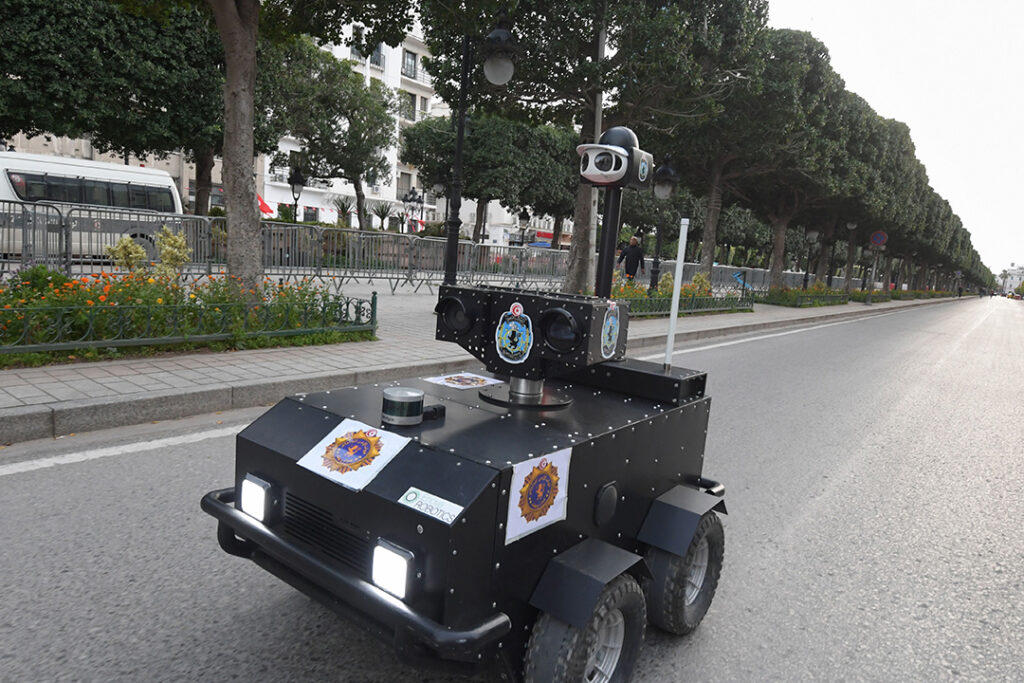ADF STAFF
Since the COVID-19 pandemic began, people are increasingly going digital to search for health information, make medical appointments and get test results.
Many African governments have responded to a World Health Organization (WHO) resolution to increase adoption of digital health services, which called for health departments to use technology to promote “equitable, affordable and universal access to health for all,” according to a study conducted by Vodafone, Vodacom, Safaricom and Caribou Digital.
The study, published as 180 digital health startup companies were operating in Sub-Saharan Africa, showed that 75% of African nations have a digital health strategy. An increase in the use of smartphones and more affordable mobile internet access have spurred use of digital tools during the pandemic.
Africans are responsible for 13% of all new or improved COVID-19 technology created, according to a WHO study, which applauded Ghana and Tunisia for developing pandemic-specific technologies.
Ghanaian innovators created the COVID-19 Tracker App for reporting symptoms and tracing contacts, solar-powered hand-washing stations, and drones that deliver at-home coronavirus tests. Tunisian inventors produced a robot to help enforce lockdowns.
Speaking about the Tracker App, Ghanaian Vice President Mahamudu Bawumia said data is “the most powerful weapon” against the pandemic.
“This is another weapon in our arsenal,” Bawumia said in a statement. “It will provide us real time data and allow a quick, early response by our professionals.”
Ghana was also the first country to adopt the African Union’s PanaBIOS mobile software that tracks crowds and helps users certify their COVID-19 status at border crossings.
Videos of the Tunisian-made PGuard robot, developed by Enova Robotics, were widely shared on social media. In one, a robot asks a man if he knows there is an ongoing lockdown. The man said he wanted to buy cigarettes.
“OK buy your tobacco, but be quick and go home,” the robot responded, according to a BBC report.
Shortly after the pandemic began, the WHO adopted a WhatsApp platform developed by South African company Praekelt.org to distribute information on the outbreak. The platform provides coronavirus-related travel advice and information about symptoms, infection and death rates, while also countering misinformation.
Through the digital-cash transfer program Novissi, Togolese officials decreased the financial burden on workers most affected by the pandemic. According to the World Bank, the outbreak threatened 62% of jobs in Togo.
Launched in 2020, the Togolese program distributed $4.3 million in its first week of use, Quartz Africa reported.
“Mobile cash is the best way to help Africa fight COVID-19,” Togolese President Faure Gnassingbé wrote in an opinion piece for the Financial Times.
More than 581,000 Togolese have benefited from the program, according to a report by Africa Renewal.
In East Africa, the pandemic led to a surge of patients and health care providers engaging in telehealth, also known as telemedicine. This limits contact for health care workers and allows vulnerable and remote patients to receive services even in isolation. It also saves money by reducing the need for physical infrastructure.
Babyl, a digital health care provider in Rwanda, reported an increase in daily consultations from about 3,000 in March 2020 to more than 5,000 in August 2021.
Ugandan provider Rocket Health said phone and video consultations rose by 500% in 2020 and quadrupled by September 2021.
In Kenya, Ultra Red Technologies uses digital 3D printing to create face shields for medical workers. Uganda’s mTrac medicine-supply mobile tracking system, a public-private partnership, lets health workers report drug shortages by text message.
Digital connections also have brought Africa’s research laboratories onto the front lines of the search for COVID-19 treatments.
Dr. Matshidiso Moeti, head of the World Health Organization’s Africa Regional Office, said that because of high-speed internet connections in major cities, researchers in Dakar, Senegal; Addis Ababa, Ethiopia; Cape Town, South Africa, and beyond have shared key findings with their colleagues in Europe, Asia and the Americas, making the search for a cure a truly global collaboration.

